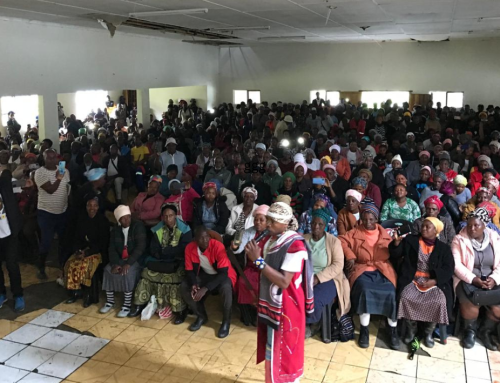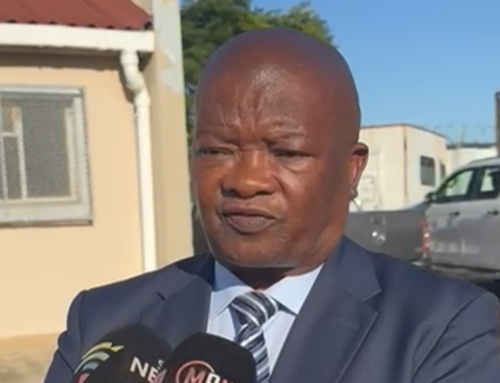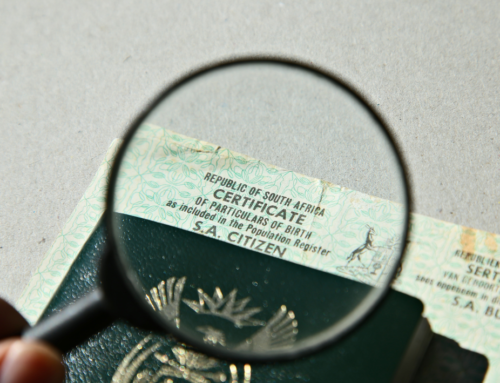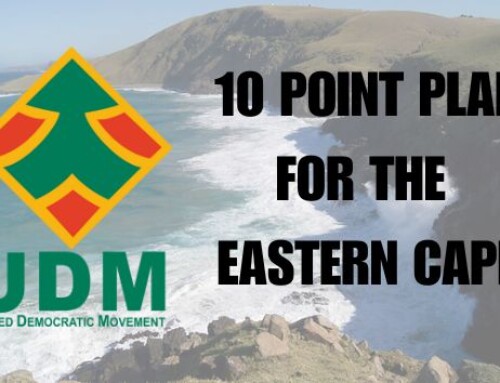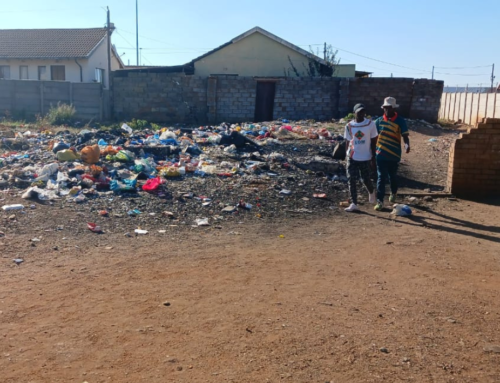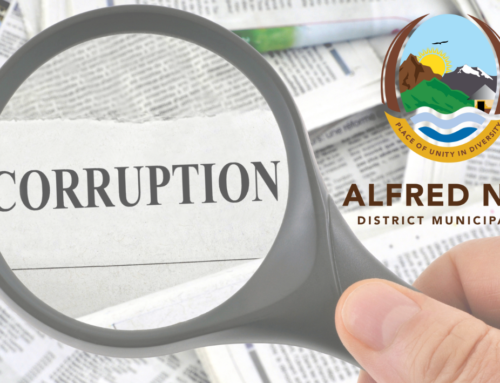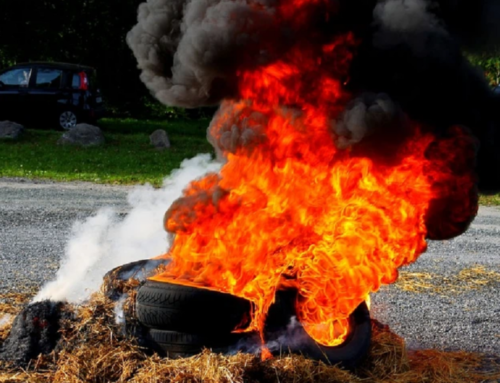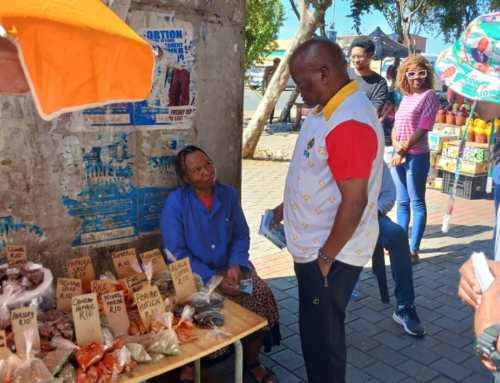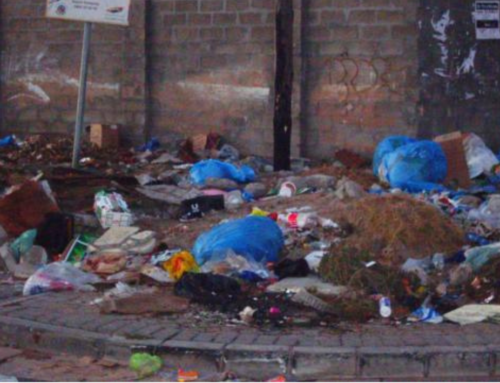Speaking notes for UDM President, Mr Bantu Holomisa
1. Welcome
On behalf of the entire United Democratic Movement (UDM) leadership, I extend a word of welcome to all of you gathered here today as we commemorate Human Rights Day in South Africa.
For each of you, being present is a personal sacrifice and is contribution to the life of the UDM. The UDM leadership therefore thanks you for investing your money, time and energy to be here, as we honour those who have come before us in the fight for a just and equal South African society; free of the shackles of Apartheid.
2. Remembering those who came before us
Today, we remember the Sharpeville massacre of 1960 when police opened fire on thousands of people who protested the draconian pass laws. We will never forget that almost 300 lives were irrevocably changed that day; with 69 souls making the ultimate sacrifice so that we can, today, enjoy our civil liberties in a post-apartheid South Africa.
The great tragedy of what happened that day, is that it was not the end of the struggle for the dignity and freedom of non-white South Africans.
A few days later, on March the 31st, more than twenty people were massacred in a march against the pass laws in Langa, Cape Town.
We had the Soweto Uprising – who will ever forget the iconic picture of the limp body of young Hector Pietersen? Much of which followed, happened in the name of the armed struggle, which affected black and white alike.
Today, is also the 33rd commemoration of the 1985 Uitenhage Langa Massacre, where at least twenty people were killed at a Sharpeville commemoration.
On this day, we also remember the 1992 Bhisho Massacre and the tragic deaths in Boipatong, where the fires of the so-called black-on-black violence were stoked for the most nefarious of goals. Soon Shell House followed.
The word “massacre” far too often marks low-points in our history; and this does not even quantify the sacrifices that so many other black and white South Africans made, so that we may all enjoy political freedom.
3. What does Human Rights Day mean in 2018?
Sadly, that awful word, again scarred our nation’s consciousness when we witnessed the Marikana massacre, which was the single most lethal use of force by South African security forces against civilians since 1960. Like at Sharpeville, many of the victims were shot in the back whilst trying to flee for their lives.
We witnessed (what can arguably be considered as a massacre) when over a thousand patients were relocated to mainly unlicensed NGOs by order of the Gauteng Department of Health… 144 people lost their lives in this tragedy… and they were vulnerable people who most needed their human rights to be protected!
It is therefore clear, that fighting for human rights (even when it is entrenched in our constitution), should remain on our daily radars. We cannot afford to forget our history and we must work hard to not repeat the atrocities of the past.
May all their souls rest in peace.
4. The state of the nation in brief
Despite the changes for the better since 1994, South Africa still faces, amongst others, challenges such as unemployment; inadequate housing and poor living conditions; sub-standard education; a dilapidated public healthcare system; the deeply emotional issue of land; stark racial, gender and economic inequality, as well as the scarcity of opportunities.
The changing political landscape in South Africa, particularly over the past few years, has demonstrated that South Africans are tired of the so-called self-correcting nature of the ruling party.
The UDM must certainly pat itself on the back for bringing about the change we witnessed with our now infamous former President’s exit from office.
I remind you that we, last year, amassed in our thousands to march against this corrupt, constitutionally delinquent man who could no longer be trusted to lead the nation.
The UDM went all the way to the Constitutional Court to fight for the “secret ballot” to rid South Africa of “Suspect Number One”. We have consistently made our voice heard in the media and kept ourselves relevant in the body politic of this country.
The opposition, civil society, the media and the courts can rightly say that they fulfilled their tasks as part of the checks and balances that protect good governance and ensure a healthy democracy.
Yes, 2018 ushered in a new South African president. But, despite the so-called right noises we hear from the Union Buildings, the question remains the same as it had been in 2017 and the preceding years…
Notwithstanding the billions of rands spent on infrastructure development since the advent of democracy, just last week a five-year-old girl died, because of poor school infrastructure, when she fell into a pit latrine at a school in the Eastern Cape.
Keiskamahoek is on fire because, amongst others, the local roads are beyond repair, because of the current government’s failure to even maintain the infrastructure they inherited in 1994. In this small town, street lights are a luxury, post the so-called new wave.
Here in Gauteng, we still have the toll roads, which the people of this province cannot afford and drives up the cost of living. In fact, the Esidimeni Life tragedy points to a public health infrastructure, in this province, that have been neglected to the point where our people are dying for no reason at all.
The UDM is very clear that, without a clear and focused investment into a comprehensive infrastructure development programme, the challenges of poverty, unemployment, inequality and underdevelopment shall continue to haunt our nation.
In this regard, the UDM will in the second term of Parliament lead a debate in the National Assembly on this matter. We invite you to submit your ideas on what needs to be done in regards to infrastructure development.
5. How do we recue South Africa from the slippery slope of entrenched corruption and the maladministration of an uncaring government?
We all know that, putting a fresh coat of paint on a delipidated car, does not make it new. Underneath the hood it is still has an engine that will leave you in the lurch (especially when you need it to perform at its best).
Voters can no longer afford to be fooled by this leopard trying to convince us that it has changed its spots.
The fact remains that the very people who presided over our county’s decline over the past few years are still at the helm.
It is the same so-called leaders who were hell-bent on defending their corrupt colleague, even after the writing was on the wall.
It’s even worse, when that very same party ropes in the same dubious character to work in its campaigns for the 2019 National and Provincial Elections.
Clearly the “new dawn” is a continuation of the sunset it preceded. A Looter Continua!
As a parting shot on this topic… it remains to be seen what the State Capture Inquiry will uncover. The nation could very well still be in for a major shock as the Deputy-Chief Justice starts digging into both public and private sector corruption.
Indeed, the UDM can be proud of the fact that none of our leaders have been convicted of corruption and that we have been consistent in promoting the ethics of good governance.
It is due to the continuous spade-work of parties like our own, that we hold the corrupt to account and turf out those who put their pockets first and the people last.
5.1. The land debate and expropriation without compensation in the bigger scheme of things
Without belabouring the various crises that we face, some of which I mentioned earlier, I want to address one topic in particular… land.
South Africans, of all persuasions, must understand and admit (whether they like it or not) that the land issue must be addressed once and for all, and that it must happen soon, because the country teeters on the precipice of open revolt.
It has become a racial political football precisely because of South Africa’s divisive and turbulent history.
The ruling party’s administrations, of the past twenty-four years, have also not done us any favours with their corruption-laced and slow-paced land redistribution project.
No-one can dispute that black South Africans were, in the past, dispossessed of land without consultation (never-mind with compensation).
To put this into context, I was recently told that historian WJ du Plessis noted that: “By the time of the advent of the new South Africa, about 17 000 statutory measures had been issued to segregate and control land division, with 14 different land control systems in South Africa.”
Understanding the issue of land in this context, should find resonance with any rational individual.
The UDM therefore voted in favour of the motion, that was recently tabled before the National Assembly, because the imbalances of the past must be addressed.
But, with the following rider: it must be done, in terms of a constitutional review, fully cognisant of the implications and mechanisms of implementation. We, categorically, did not a vote for land grabs and turning the country into a second Zimbabwe.
The debate, as it currently stands, needs level-headedness.
The land issue should also not be used as a populist scaring tactic (by either the left, or the right) to drive the wedge deeper between the formerly oppressed and the formerly advantaged.
I therefore invite the UDM’s structures, members and any interested parties, to enter into discussion on this topic and send your feedback to land@udm.org.za (by end-April) on what the fears, hopes and ideals of our people are where land is concerned.
6. Fighting “the good fight” since 1997
Many of you who are here today, have since the UDM’s inception, fought the good fight to clean government and hold those in power accountable.
I recognise many faces of those who, with me, left behind a ruling party that, year-by-year, sunk deeper into the quagmire of moral decay, as well as those who exited a nationalist party that refused to recognise its cruel racism and discrimination.
You will be proud together with me, that the UDM is firmly rooted in the post-apartheid South Africa that does not have any political baggage.
The UDM therefore is the only credible political alternative that can enable South Africans to break free from the shackles of the past twenty-four years and the damage that was done in the era before democracy.
6.1. Recapturing the lost ground
Notwithstanding the quite volatile political climate of the late nineties, the UDM, in 1999, managed to have public representatives in Parliament and in no less than six provincial legislatures.
In 2000, when we contested municipal elections for the first time and we put into office, 240 councillors nationwide; and also won the King Sabata Dalindyebo Municipality in the Eastern Cape.
But how do we recapture this lost ground?
It is a fact that the UDM is widely recognised as an authentic, progressive alternative. People see the party as a champion of clean governance. Our reputation for ethical politics and rationality resonates with South Africans of all walks of life and gives us an edge over other parties.
The UDM has, despite the shortcomings in the funding of political parties, sustained itself through mere word of mouth. We have never spent a cent on fancy public relations companies, image polishers and spin-doctors.
In stark contrast to this set-up, it was reported that a certain political party (that shall remain nameless) plans to blow a whopping R264 million, on its 2019 Election Campaign. It almost feels like a Hail Mary Pass to stay in control of the country…
In order for the UDM to effectively reach the electorate, whilst not having the same resources (including those pilfered from government) as the “big shots” do, it may be necessary for us to consider investing in a strategic marketing exercise, to persuade voters, especially the youth, that the UDM is the political home for all South Africans.
6.2. What’s on our “to-do list” in the months leading up to 2019?
The UDM needs to be responsive and pick up issues that affects people’s daily lives and mobilise civil society organisations, all sectors of society, and the people in general, around those issues.
The UDM must, in very practical terms, demonstrate its core vision i.e. being the “political home for all South Africans”. It is therefore important that our pool of candidates for the 2019 National and Provincial Elections reflects this characteristic.
We therefore thought it wise to “throw the net wider” as we start the exercise of identifying prospective UDM candidates. Not only are we encouraging our members to step up to the plate, but we have invited members of the public, who identify with the UDM’s values and ideals, to give it a shot.
We will however fiercely guard against opportunists, who want to parachute onto our candidates’ lists, without first proving themselves. Prospective candidates will therefore be given the assignment of building their own constituencies and grow the Party’s influence.
6.3. The UDM on post-2019 coalition governments
If the 2019 elections are to deliver no outright winner, which political pundits predict, the question of coalitions comes to the fore.
Just to clarify, the UDM will not consider any form of partnership with other parties before 2019. We will retain our political identity, promote our brand of politics and will only consider coalition after the results have been announced.
At that point in time, the UDM will bargain on behalf of the people so that they will have a say in how their government should be run.
In other words, in the UDM’s view the work of any coalition government must be rooted in: “putting people first”.
7. Conclusion
The task to build the UDM, on our road to 2019, and years beyond, is a big challenge. This doable if we put our noses to the grindstone.
We must motivate people (especially the disenfranchised youth) to register, at any time, at any Municipal Electoral Office – or during the coming voter registration weekends. It is important that we spread the word that voters must ensure that their addresses are complete and correct on the voters’ roll; if they don’t do this, they might be turned away from the polling stations in 2019.
We must always remember that the task to build the UDM is not only about the future of the party, but about the prosperity of the country and her people.
The hard work must start now!
Our first milestone is an improved performance in the 2019 elections as a benchmark to build on for all future elections. We have a responsibility to convince voters that the UDM is the only vehicle that can make manifest the UDM’s vision for South Africa.
I hope we all leave here today, feeling energised to go full-swing towards 2019. Go out and launch branches, knock on people’s doors and convince them that the UDM is the right, and only party to vote for.
Thank you for listening and please arrive home safely.
Phambili UDM! Phambili!



